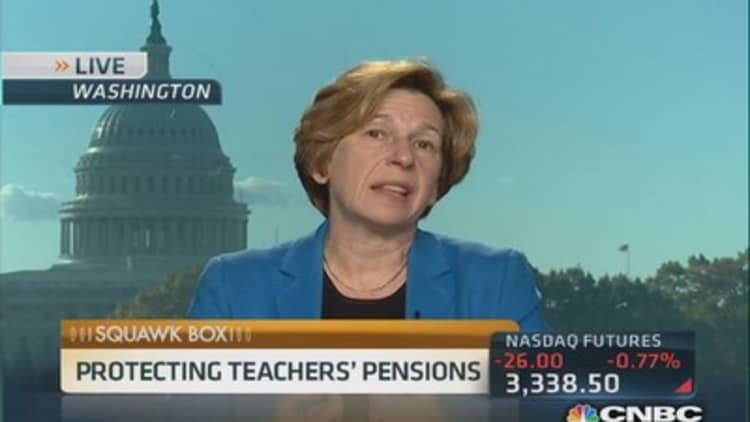With its membership tumbling sharply and a long-running effort to organize foreign-owned makers still in limbo, the United Auto Workers union is looking at the possibility of raising its dues by 25 percent—its first hike since 1967.
While still considered the richest of America's unions, the UAW has faced increasing troubles in recent years, with membership declining, organizing efforts stalling and rising costs forcing it to slash expenses. Despite an estimated $1 billion in assets, there have been ongoing concerns about the UAW's long-term viability and its political clout.
As a result, the Detroit-based union would like to raise dues by as much as 25 percent, according to a report from the Reuters news service. For the average worker, that would amount to paying the equivalent of 2.5 hours wages a month, versus the current two hours.
Because dues vary depending on pay grade, however, if the increase is approved, a veteran line worker at one of the Big Three automakers would pay a total of about $70.32 a month, while a recently hired employee at a second-tier payscale would see a rise to about $39.45.
(Read more: Detroit eligible for bankruptcy protection: Judge)
The proposal is "only in the discussion phase," Jimmy Settles, the head of the union's Ford department, told Reuters, adding that "no decision has been made."
While dues rise with wages, it would be the first formal increase in the formula since 1967—when the union was at its peak in an industry overwhelmingly dominated by Detroit. UAW membership continued to grow even after Japanese makers such as , Nissan and Honda began to gain ground following the twin oil shocks of the 1970s.
The UAW hit its peak in 1979, with 1.5 million dues-paying members. Since then, it has nosedived, with only 382,500 members at the end of 2012—a nearly 75 percent decline. The ranks have shrunk 30 percent just since 2005, a result of a number of factors.
The UAW has offered repeated concessions to assist Detroit's Big Three—General Motors, Ford and Chrysler—two of which went into bankruptcy in 2009. The domestic restructuring has seen the closure of scores of assembly and parts plants, while new rules meant to promote productivity have further trimmed the rank and file.
(More from The Detroit Bureau: Small cars, big price? Compact crossovers defy conventional wisdom)
Union membership has been tumbling nationwide, with only about one in nine U.S. workers represented by an organized labor group last year, according to federal figures. It remains to be seen if the UAW will feel any impact from the move by the Michigan Legislature to make it a right-to-work state.

The United Auto Workers strongly opposed that measure and in years past probably would have been able to block its passage. But the move, backed by the GOP-controlled Legislature and signed by a Republican governor, underscores the steady decline in the union's clout.
Part of the problem has been the rise of tea party politics, but a decline in funds available to support political causes has not helped. The union's total assets fell in 2012 for the sixth consecutive year, according to a filing with the Labor Department.
(More from The Detroit Bureau: Forget those old econoboxes; Hyundai wants to sell you luxury cars)
The UAW hasn't completely lost its touch, though. A historically active proponent of causes ranging from racial equality to universal health care, it was active in both the 2008 and 2012 campaigns.
Still, perhaps the union's biggest failure has been its inability to organize the dozens of foreign-owned "transplant" assembly lines that have popped up across the U.S. since Honda opened its Marysville, Ohio, plant more than 30 years ago.
Though several earlier efforts failed, the UAW appears to have a good shot at gaining representation rights at the Volkswagen plant in Chattanooga, Tenn., and it is working to schedule an election at Nissan's factory in Canton, Miss.
(More from The Detroit Bureau: GM car czar Mary Barra named top global busineswoman)
UAW membership has risen a modest 8 percent in the past year, inconsistent with the overall rebound of the American auto industry. Hoping to buoy its ranks, the labor group has continued pushing into nontraditional fields, including teachers and even flight attendants, but it remains largely dependent on the industry for both members and dues.
—By CNBC Contributor Paul A. Eisenstein. Follow him on Twitter @DetroitBureau or at thedetroitbureau.com.


